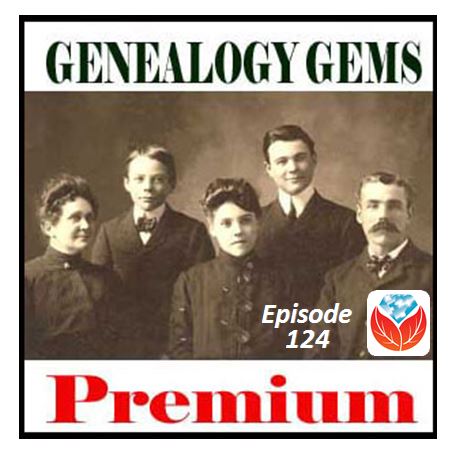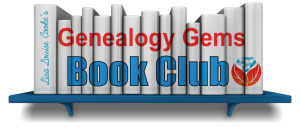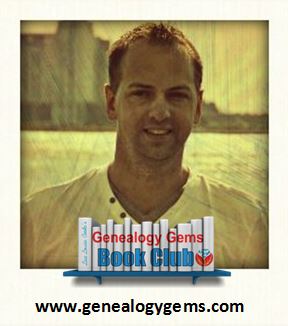Blog


Search for Early New England Ancestors FREE this Coming Week
 In honor of Independence Day in the United States, AmericanAncestors.org is offering free access to databases on early New England ancestors starting TODAY through July 8.
In honor of Independence Day in the United States, AmericanAncestors.org is offering free access to databases on early New England ancestors starting TODAY through July 8.
If you have Mayflower, Pilgrim or Puritan ancestors (or want to confirm the rumor that you do!), you’ll want to take advantage of this offer from the New England Historic Genealogical Society. For many years the society has been researching “the 20,000 men, women, and children who crossed the Atlantic between 1620 and 1640, seeking opportunity and relief in New England.”
The Great Migration Study Project, as their work is known, has resulted in several databases, nine of which are open to the public for FREE during the first week of July 2015:
The Great Migration Begins. This database “attempts to identify and describe all those Europeans who settled in New England prior to the end of 1633,” states an NEHGS press release. “As a rough estimate, about 15 percent of the immigrants to New England arrived in the fourteen years from 1620 to 1633, with the remaining 85 percent coming over in half as many years, from 1634 to 1640.”
The Great Migration Newsletter. “This database comprises Volumes 1 through 20 of the Great Migration Newsletter, published between 1990 and 2011. Each 32-page issue contains one or two feature articles, a column with editor’s comments, and a review of recent literature on the Great Migration. Each issue also contains a section with detailed coverage of one of the towns settled during the Great Migration, or of a specific critical record, or group of records.”
The Great Migration: Immigrants to New England, 1634-1635, Volumes I—VII, A-Y. (7 separate databases) “As many as 2,500 people immigrated in 1634 and again in 1635….In May 1634, the population of Massachusetts doubled in just one month….Each alphabetical entry for a family or individual includes:
- Place of origin, if known
- Date and ship on which they arrived in New England, if known
- Earliest known record of the individual or family
- First residence and subsequent residences, when known
- Return trips to their country of origin, whether temporary or permanent
- Bibliographical information such as birth, death, marriage(s), children, and other important family relationships, church memberships, and civil and military offices held.”
Click here to access these databases for free between July 1-8, 2015. (Registration at AmericanAncestors.org is required as a FREE Guest Member.)
 Looking for more FREE New England genealogy resources? Check out these blog posts!
Looking for more FREE New England genealogy resources? Check out these blog posts!

Genealogy Gems Premium Podcast Episode 124: Ancestry, Book Club Interview and More
 If there’s a theme for Genealogy Gems Premium Podcast Episode 124, it’s travel! (Which works for us here in the U.S., where we are enjoying summer vacations.) Our ancestors sure traveled, and sometimes a paper trail followed them. In this episode you’ll hear Contributing Editor Sunny Morton’s interview with Phil Goldfarb, author of two volumes on U.S. passport applications. More episode highlights include:
If there’s a theme for Genealogy Gems Premium Podcast Episode 124, it’s travel! (Which works for us here in the U.S., where we are enjoying summer vacations.) Our ancestors sure traveled, and sometimes a paper trail followed them. In this episode you’ll hear Contributing Editor Sunny Morton’s interview with Phil Goldfarb, author of two volumes on U.S. passport applications. More episode highlights include:
 The exclusive Genealogy Gems Book Club interview with Nathan Dylan Goodwin, author of our featured title, The Lost Ancestor (The Forensic Genealogist);
The exclusive Genealogy Gems Book Club interview with Nathan Dylan Goodwin, author of our featured title, The Lost Ancestor (The Forensic Genealogist);- Another tip for photographing headstones on your trips to the cemetery, whether your own relatives’ or for sites like BillionGraves;
- Follow-up tips on saving your data at Ancestry and navigating the remodeled Ancestry website;
- An easy, inexpensive family history craft that would be perfect for a family reunion this summer.

Here’s a teaser from our conversation on passport applications: People lied on them, including those who became famous. Clara Barton lied about her age and Harry Houdini said he was born in the U.S., when he was actually born in Austria-Hungary. Also, passport applications can be an excellent place to learn an immigrant’s date of arrival in the U.S., the ship they arrived on and the court and date of naturalization.
Did you know that Genealogy Gems Premium members have access to our full archive of Premium podcast episodes, as well as hours’ worth of exclusive video tutorials on genealogy research skills, using online records and harnessing powerful technology tools like Google searching, Google Earth and Evernote for genealogy? Click here to learn more about Premium membership for yourself or for your genealogy society or library.
As always, our Genealogy Gems flagship podcast remains free, thanks to your support and purchases you make through the links we provide (like for the books we recommend on this page).

Interview with Nathan Dylan Goodwin: Genealogy Gems Book Club
As part of our Genealogy Gems Book Club, author Nathan Dylan Goodwin joined us on the Genealogy Gems podcast to talk about the newest book in The Forensic Genealogist series: The Lost Ancestor (The Forensic Genealogist series Book 2).
In our interview, Nathan talks about how his intrepid genealogist hero, Morton Farrier, tracks down years-old family mysteries while dodging threats and evil glares of his nemesis librarian at the local archive. He explains more about the Downton Abbey-type setting for The Lost Ancestor’s ancestral tale. And he comments on the challenges of trying to come up with genealogical mysteries that have such consequence for the present that they inspire a backlash of modern crime.
You can listen to a meaty interview excerpt in the FREE Genealogy Gems podcast. The full-length interview (click here) is available in the Genealogy Gems Premium podcast. (Click here to learn about Premium access to an enormous members-only digital archive of Premium podcast episodes and full-length video classes on Lisa’s most popular topics.) Want to read the book? Click here to purchase it, and you’ll support the free Genealogy Gems podcast. (Thank you!)





